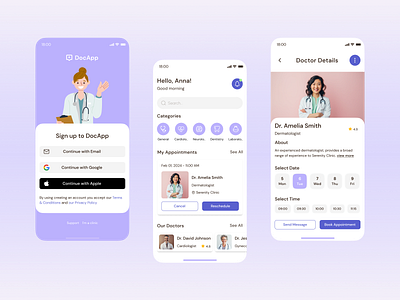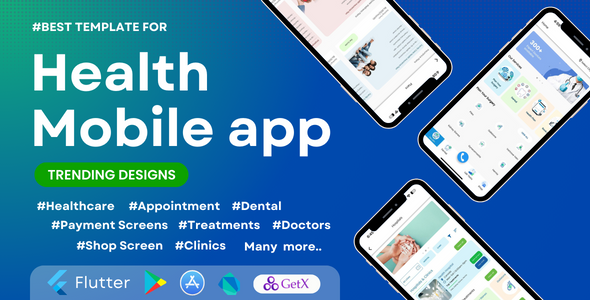Finest Practices for Creating a Mobile App for Clinics That Meets Patient Requirements
Finest Practices for Creating a Mobile App for Clinics That Meets Patient Requirements
Blog Article
The Future of Medical Care: Why Clinics Need a Mobile Application Today
As the medical care landscape proceeds to evolve, clinics deal with placing pressure to adapt to person expectations for higher comfort and availability. The integration of mobile applications can offer as an essential technique for improving client engagement and improving operations. By leveraging modern technology to improve communication and supply crucial services, facilities not only deal with current needs however likewise place themselves for future success. The ramifications of this change extend beyond plain functional effectiveness; they can redefine individual connections and care shipment in extensive methods. What might this makeover resemble for both centers and individuals?
Altering Patient Expectations
As the landscape of medical care progresses, person assumptions are undertaking a significant improvement. Today's clients are progressively looking for convenience, accessibility, and individualized treatment. With the rise of technology, particularly mobile applications, people currently anticipate a seamless combination of medical care services into their every day lives. They desire the capability to take care of consultations, access medical documents, and connect with doctor with their mobile phones, showing a change towards a more aggressive method to health monitoring.
Additionally, people are becoming a lot more notified and encouraged, typically researching conditions and therapies online before appointments. This heightened awareness is coupled with a demand for openness in healthcare processes, including cost quotes and therapy options. Consequently, suppliers are compelled to adapt by taking on electronic tools that enhance the individual experience.
The expectation for effective and timely interaction has never been greater, with many patients considering responsiveness a critical element of quality care. mobile app for clinics. In this advancing landscape, health care organizations should acknowledge these changing expectations and take advantage of mobile applications to cultivate a more patient-centric method, ensuring that they not just meet but exceed the requirements set by today's informed consumers
Enhancing Individual Engagement

Mobile applications assist in communication between clients and healthcare service providers, enabling real-time consultation organizing, pointers for medication adherence, and straight messaging functions. These capabilities not only enhance convenience but additionally construct a sense of liability among people. Moreover, mobile apps can provide instructional material tailored to private requirements, helping patients much better comprehend their problems and treatment options.
The integration of gamification components within healthcare applications can additionally inspire individuals to involve in healthy and balanced behaviors, strengthening positive way of life modifications. Eventually, improving client involvement through mobile applications leads to enhanced wellness outcomes, better individual complete satisfaction, and a more collaborative medical care experience.
Enhancing Facility Operations
Streamlining center operations is vital for improving workflow efficiency and enhancing person care. The implementation of mobile applications can significantly reduce management concerns, permitting healthcare suppliers to concentrate extra on client communications. By automating consultation Homepage scheduling, client check-ins, and invoicing procedures, centers can reduce wait times and boost overall functional effectiveness.
Mobile applications also assist in real-time accessibility to person documents, allowing medical care experts to make informed choices quickly. This immediacy not only boosts the top quality of care but also decreases the likelihood of errors related to misplaced or outdated details. Leveraging mobile modern technology supports a more well organized method to managing person follow-ups and therapy plans, making sure that no critical actions are overlooked.
In addition, mobile apps can simplify inventory monitoring by providing centers with browse around this web-site tools to check medications and products efficiently. This enables prompt replenishment and assists stay clear of disturbances in patient treatment as a result of equip scarcities. By incorporating these capabilities into their day-to-day procedures, clinics can create a more effective and natural atmosphere, eventually causing improved person end results and contentment. Accepting mobile innovation is not just a pattern; it is a required development in the medical care landscape.
Improving Interaction Channels
Reliable communication is frequently pointed out as a foundation of quality medical care distribution. In today's busy medical environment, mobile applications can substantially enhance communication channels between facilities, individuals, and healthcare providers. By integrating mobile applications into their procedures, facilities can assist in real-time communications, guaranteeing that clients get timely information regarding their consultations, test outcomes, and therapy strategies.
Mobile apps additionally equip people to interact straight with their healthcare teams with secure messaging features. This straight line of interaction cultivates a sense of engagement and permits for prompt clarification of issues, which can cause far better adherence to therapy protocols. Push alerts can remind patients of upcoming consultations or medicine routines, reducing no-show rates and boosting overall health end results.

Remaining Affordable in Healthcare
In a rapidly evolving health care landscape, companies should prioritize innovation and flexibility to maintain an affordable side. The combination of mobile applications into health care services is no much longer optional; it is vital for clinics aiming to improve person involvement, simplify operations, and enhance general solution Read Full Report distribution.
As individuals significantly rely upon digital platforms for health monitoring, clinics that stop working to take on mobile modern technology risk dropping behind. A well-designed mobile app can use attributes such as consultation scheduling, telemedicine consultations, and accessibility to medical documents, providing patients with convenience and cultivating loyalty.

Competitors are also buying mobile solutions, so remaining ahead needs continual improvement and staying informed regarding technical advancements. Clinics must not just apply mobile applications but likewise engage in normal updates and improvements. Eventually, the successful combination of mobile modern technology will distinguish forward-thinking health care companies and set the criteria for patient-centric treatment in an electronic world.
Verdict
In final thought, the assimilation of mobile applications in clinics is important to resolve the evolving landscape of patient assumptions. Ultimately, the strategic implementation of mobile apps stands for an essential action toward providing easily accessible and individualized health care, thus satisfying the needs of today's empowered patients.
Inevitably, boosting patient engagement through mobile applications leads to enhanced health and wellness outcomes, greater client complete satisfaction, and a more joint healthcare experience.Mobile applications likewise promote real-time access to person documents, enabling medical care professionals to make enlightened decisions promptly. In today's fast-paced clinical environment, mobile applications can significantly enhance interaction channels between centers, clients, and healthcare carriers.Mobile applications likewise encourage people to communicate directly with their medical care groups through secure messaging functions. Ultimately, the calculated application of mobile applications stands for an essential action towards delivering easily accessible and individualized medical care, consequently satisfying the demands of today's empowered people.
Report this page